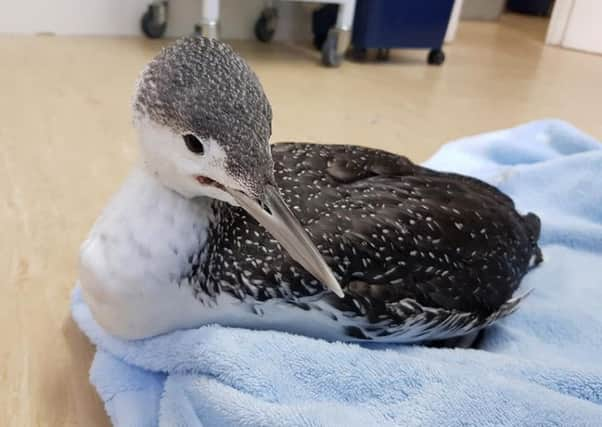TREVOR WEEKS: Some tips to help out the wildlife during the snowy weather


This is no bad thing with the current wintery weather and the Met Office’s severe weather warnings issued.
Chris and I have been staying over at the Casualty Centre in case volunteers cannot get in. It’s been a few years since this last happened likely but it will always be the one occasion we don’t that it will be a problem and we don’t want to take that risk.
Advertisement
Hide AdAdvertisement
Hide AdPlease think of our wildlife during these snow showers and remember to put out seed and suet for the birds and if you can some scraps of food for our foxes and badgers. Please avoid putting out anything that is salty or spicy, as this will not help them during the cold.
You could try putting out cheese, boiled potatoes, bread and fat scraps at dusk. Badgers struggle to find food when the ground is frozen. Provide them with lightly cooked meats, cheese, peanuts and fruit.
Squirrels do not hibernate, instead they cache food during autumn to eat when food is scarce. Offer them nuts such as hazelnuts, walnuts and almonds, plus some chopped apple, beans, carrots or spinach.
Please do not leave out large quantities of food each evening to avoid your guests becoming dependent on handouts.
Advertisement
Hide AdAdvertisement
Hide AdThis can cause localised over populations in the long term, which encourages people to persecute our wildlife.
Fresh water is always very important, as this can be difficult to find when everything is frozen. Just be aware of not smashing ice on ponds and stream as the sound and shock waves can cause trauma to fish and other creatures living in water.
Use a pot of hot water to melt the ice.
This leads to animals drinking from bowls of antifreeze and other discarded chemicals causing poisoning. So if you have any antifreeze ensure it is in an appropriate container and put somewhere safe.
If you know your are is leaking antifreeze try and place something underneath is so puddles don’t occur. If you spill any on the ground, try and clean it up or wash it away to prevent problems.
Advertisement
Hide AdAdvertisement
Hide AdAfter the successful releases of the badgers found last week in sheds at Bexhill, down the side of a house in Uckfield and two fallen into a garden in Hastings, rescuers have dealt with another one in Heathfield.
This one was hidden up in a garage. It had minor territorial bite wounds to his rump and neck which needed cleaning up and treatment. The badger is likely to be with us for at least a week before being suitable for release again.
The great skua which we rescued at Pevensey Bay earlier this year, has been over at the RSPCA Mallydams Wood at Fairlight for the past few weeks, getting outdoor rehabilitation and prepared for release.
I’m pleased to say he was finally released last week back to the wild where he flow off strongly and hopefully will continue his migration route south.
Advertisement
Hide AdAdvertisement
Hide AdLast weekend we sent a stunning red throated diver to Mallydams too. Rescuer Karen picked him up after being found wrapped in fishing line on the beach at Seaford. There is some damage to the mouth, which is not fresh and needs antibiotics.
We have had two very young feral pigeons come into care from Pevensey Bay after falling their nest. They are with our pigeon and dove expert Kathy who has named them Chalk and Cheese.
The moorhen with the fractured leg, which was rescued at South Chailey after being found at the side of a busy main road a few weeks ago, has gone home this week.
We found a pond not far from where he was rescued and he flew off, glad to be back home.
Advertisement
Hide AdAdvertisement
Hide AdWith spring not far away now, we are starting to look for people to join our orphan rearing team.
Throughout spring and summer WRAS sees hundreds of baby birds come into care because they are sick and injured or have been abandoned. From sparrows and starling, to swallows, blue tits, magpies, jackdaws, finches as well as tawny owls and everything in between.
We require a team of committed and reliable volunteers to help us feed and clean the young birds that come into care. When the season is at its busiest, some feeds may be as often as every 15 minutes and some of our cages will require some lifting and bending so a level of ability is required. Volunteers are expected to commit to one regular shift per week from roughly April-September (obviously holiday is allowed).
If you are interested in volunteering at our Casualty Centre on the A22 at Whitesmith, as part of the orphan rearing team please contact Katie via email [email protected]